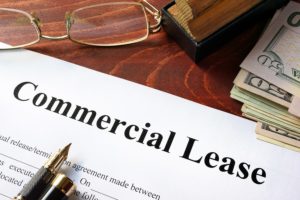Can two companies in the same industry have very different valuations? In short, the answer is a resounding, yes. Let's take an example of two companies that both have an EBITDA of $6 million but with two very different values. In fact, Business One is valued at five times EBITDA, which prices it at $30 million whereas Business Two is valued at seven times EBITDA, meaning it has a value of $42 million. Value Difference Checklist Revenue Size Profitability The Market Growth Rate Regional/Global Distribution Management & Employees Capital Equipment Requirements Systems/Controls Uniqueness/Proprietary Intangibles (Intellectual property/patents/brand, etc.) There are quite a few variables on the above checklist that stand out, with the top one being that of growth rate. Growth rate is a major value driver when buyers are considering value. Business Two, for example, with its seven times EBITDA has a growth rate of 50%, whereas Business One, with its five times EBITDA has a growth … [Read more...]
Around the Web: A Month in Summary
A recent article posted by The National Law Review entitled “Thinking of Selling? Start Early, Build Your Team” explains the importance of putting together a good team of trusted advisors well in advance of selling your business. Your team should include an attorney, accountant, investment banker, and wealth manager. This team will help you with various aspects of selling your business such as: Setting a realistic valuation on the business Finding potential buyers Handling due diligence and information requests from buyers Structuring a transaction for tax & liability protection Dealing with the sale proceeds and making sure your goals are met It is a good idea to put this team together as soon as possible if you're thinking of selling, so everyone has time to prepare. There are so many aspects to a business sale and it is essential to have an experienced team of professionals to guide you in the process. Click here to read the full article. A recent article from The San Angelo … [Read more...]
Around the Web: A Month in Summary
A recent article from Divestopedia entitled “To Sell Your Business, Start with the End in Mind” explains the importance of planning your exit strategy in the early stages of your business. The article points out that emotion plays a big part in humans' decision making process, and when a potential buyer perceives that the owner has not prepared a company for sale, they associate this with uncertainty, effort and stress that will accompany rebuilding the business. Focusing on building your company's culture is also very important for exit planning because a well-established company culture will continue to endure after you're gone. Creating a self-sustaining culture that involves talented employees, succession plans for key people, talent acquisition and talent retention can help your business be seen as more valuable in the future. Click here to read the full article. A recent article posted on BizJournals.com entitled “How to know when the ride is over and it's time to get off” … [Read more...]
Around the Web: A Month in Summary
A recent article posted on BizJournals.com entitled “Top 5 rules on preparing your company for sale” explains how the best time to begin preparing your business for sale is right now. The article highlights these main rules to follow: Start auditing your financial statements now as these will be required by the purchaser. Keep appropriate, complete corporate books and records so everything is ready to be presented to a buyer when the time comes. Obtain a professional valuation of your company so you can use this as a roadmap for growing your company and ultimately maximizing the exit price. Use the valuation of your company to determine what assets are superfluous and will not be valued. This can also help you make future decisions with your business strategy. Start the process now for finding a second in command who could easily replace the founder of the company. This will be very valuable to the future buyer after the sale is made. Starting to prepare your business for sale now will … [Read more...]
Around the Web: A Month in Summary
A recent article posted on Business2Community.com entitled “How to Close the Deal and When to Walk Away When Buying or Selling a Business” explains the business sale process and how to differentiate between a good deal and a bad deal during the process. Closing a deal involves quite a bit of legwork, including producing a letter of intent, doing due diligence, acquiring financing, signing a purchase agreement, and actually closing the deal. These items can be easier with the help of a business advisor, broker, or attorney, but emphasis should be placed on the due diligence aspect: knowing the business inside and out is vital to a successful sale. Walking away from a deal can be difficult for a motivated buyer, but is sometimes necessary to avoid emotional and financial disaster. The following red flags help to signify that it's time to walk away: Inconsistencies Neglect Undisclosed Problems Poor Credit Rating The Industry is in Decline Being prepared is one of the best things that a … [Read more...]
Around the Web: A Month in Summary
A recent article posted on Business2Community.com entitled “How to Close the Deal and When to Walk Away When Buying or Selling a Business” explains the business sale process and how to differentiate between a good deal and a bad deal during the process. Closing a deal involves quite a bit of legwork, including producing a letter of intent, doing due diligence, acquiring financing, signing a purchase agreement, and actually closing the deal. These items can be easier with the help of a business advisor, broker, or attorney, but emphasis should be placed on the due diligence aspect: knowing the business inside and out is vital to a successful sale. Walking away from a deal can be difficult for a motivated buyer, but is sometimes necessary to avoid emotional and financial disaster. The following red flags help to signify that it's time to walk away: Inconsistencies Neglect Undisclosed Problems Poor Credit Rating The Industry is in Decline Being prepared is one of the best things that a … [Read more...]
The Top 3 Key Factors to Consider about Earnings
Two businesses could report the same numeric value for earnings but that doesn't always tell the whole story. As it turns out, there is far more to earnings than may initially meet the eye. While two businesses might have a similar sale price, that certainly doesn't mean that they are of equal value. In order to truly understand the value of a business, we must dig deeper and look at the three key factors of earnings. In this article, we'll explore each of these three key earning factors and explore quality of earnings, sustainability of earnings after acquisition and what is involved in the verification of information. Key Factor # 1 – Quality of Earnings Determining the quality of earnings is essential. In determining the quality of earnings, you'll want to figure out if earnings are, in fact, padded. Padded earnings come in the form of a large amount of “add backs” and one-time events. These factors can greatly change earnings. For example, a one-time event, such as a real … [Read more...]
The Deeper Significance of a Listing Agreement
Listing agreements are very common when it comes to selling a business. In order to sell a business using a business broker, a listing agreement is usually required. In this article, we will explore this essential agreement and why it is so critical. Signing a listing agreement legally authorizes the sale of a business. The fact is that signing a listing agreement serves to represent the end of ownership, which for many business owners, means heading into new territory. Quite often owning a business is more than “owning a business,” as the business represented a dream and/or a way of life. Walking away from the dream or lifestyle represents a significant change. For many owners this is the end of a dream. It is not uncommon for many business owners to have started a business from “scratch,” and it is also only human to feel at least somewhat attached to the creation. Phrased another way, walking away from a business that one has worked on and cared for is often easier said than … [Read more...]
Are You Sure Your Deal is Completed?
When it comes to your deal being completed, having a signed Letter of Intent is great. While everything may seem as though it is moving along just fine, it is vital to remember that the deal isn't done until many boxes have been checked. The due diligence process should never be overlooked. It is during due diligence that a buyer truly decides whether or not to move forward with a given deal. Depending on what is discovered, a buyer may want to renegotiate the price or even withdraw from the deal altogether. In short, it is key that both sides in the transaction understand the importance of the due diligence process. Stanley Foster Reed in his book, The Art of M&A, wrote, “The basic function of due diligence is to assess the benefits and liabilities of a proposed acquisition by inquiring into all relevant aspects of the past, present, and predictable future of the business to be purchased.” Before the due diligence process begins, there are several steps buyers must take. … [Read more...]
Gaining a Better Understanding of Leases
Leases can, and do, play a significant role in the buying or selling of businesses. It can be easy to overlook the topic of leases when focusing on the higher profile particulars of a business. However, leases are a common feature of many businesses and simply can't be ignored. Leases and Working with Your Attorney Whenever a small business is sold, it is common that leases play a major role. In general, there are three different types of leasing arrangements. (If you have any questions about your lease, then you should consult with your attorney. Please note that the advice contained in this article shouldn't be used as legal advice.) Three Different Lease Options In the next section, we will examine three of the most common types of leases. The sub-lease, new lease and assignment of lease all function in different ways. It is important to note that each of these three classes of leases can have differing complicating factors, which again underscores the value and importance of … [Read more...]















